#Interview Magazine Germany
Text
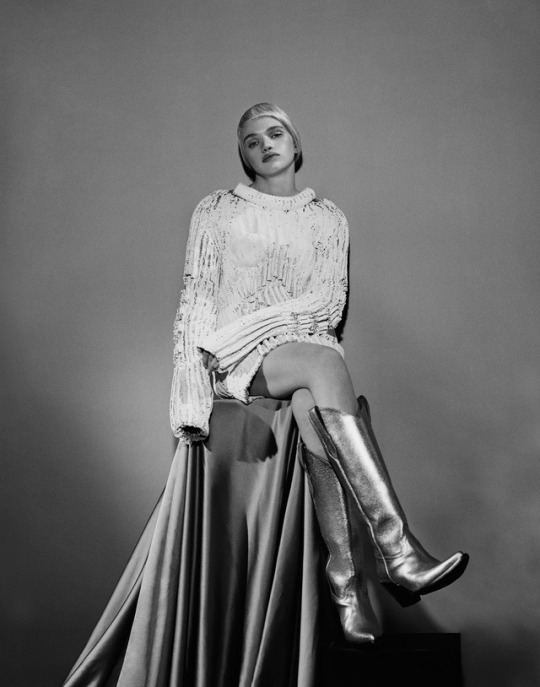
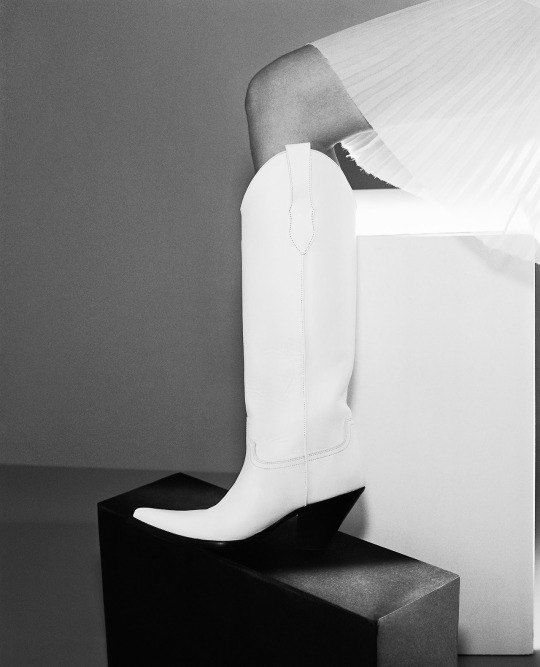
Model Stella Lucia is styled by Anna Schiffel in Maison Margiela, lensed by Jamie Morgan for Interview Magazine Germany September 2017. Hair by Tomohiro Ohashi; makeup by Anthony Preel.
#Stella Lucia#Interview Magazine Germany#Maison Margiela#Jamie Morgan#Tomohiro Ohashi#Anthony Preel#2017
13 notes
·
View notes
Photo

Christopher & Philipp Rosenthal, Fernanda Ly & Merle Gerhardy
by Vitali Gelwich for Interview Germany Sep’19
#fernanda ly#merle gerhardy#vitali gelwich#interview magazine germany#interview magazine#ss19#editorial#fashion editorial#fashion#fashion photography#photography#berlin
28 notes
·
View notes
Text
“Is it tasty?”
“It's very tasty.”
(🔊 turn on the sound)
#louis hofmann#gq germany#gq men of the year#gq magazine#gq#all the light we cannot see#werner pfennig#jonas kahnwald#dark netflix#german actors#interview
118 notes
·
View notes
Text

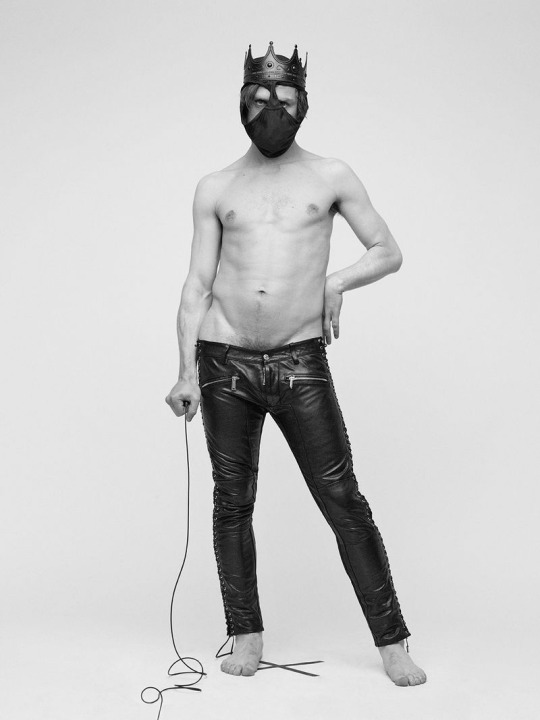
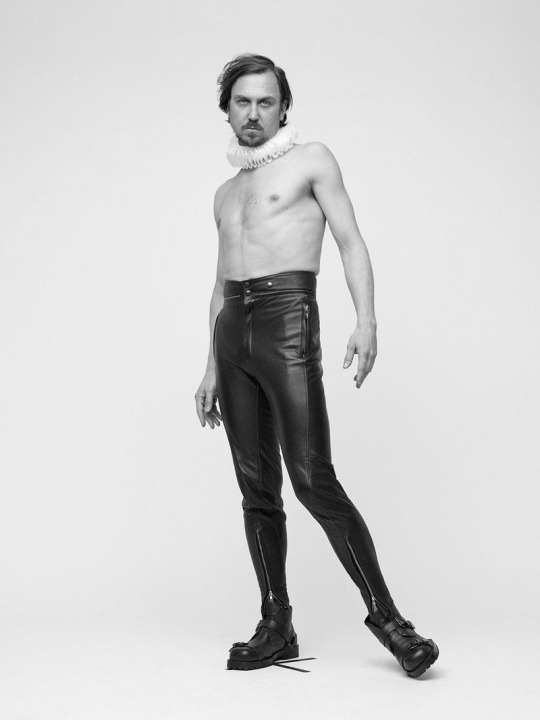
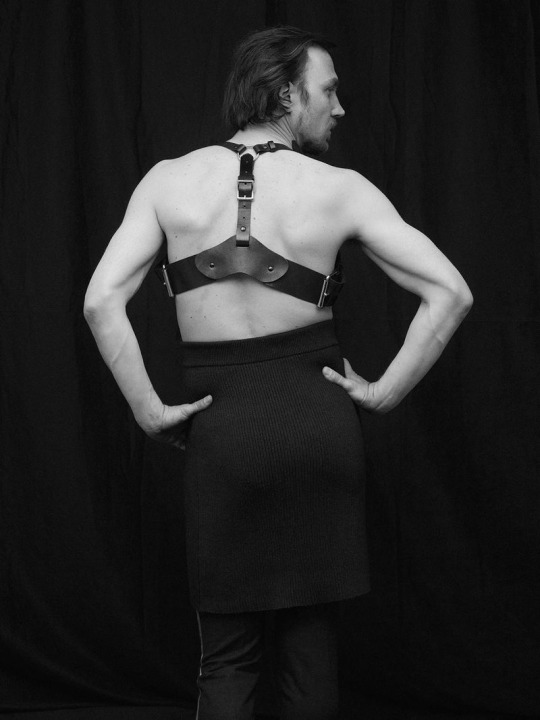
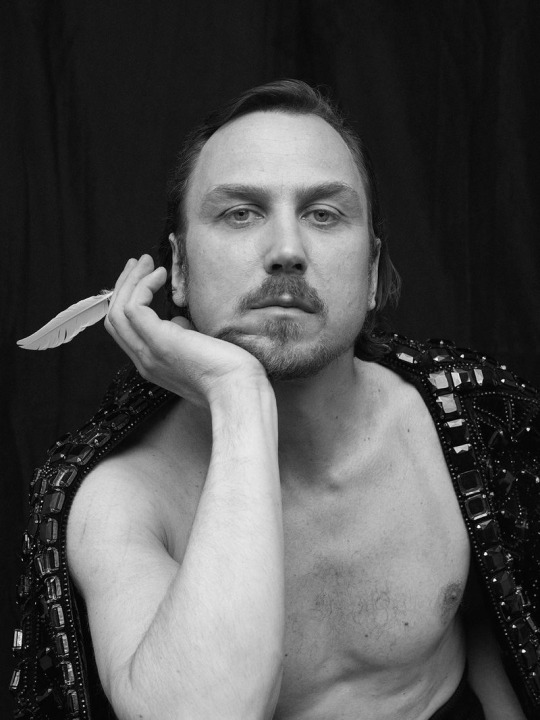

Lars Eidinger photographed by Rory van Millingen for Interview Germany, October 2015.
#mygirlhatesmyheroin#2010s#2015#interview magazine#interview germany#rory van millingen#lars eidinger#german cinema#black and white photography#fashion#bitch hes so hot i want to marry him so bad
44 notes
·
View notes
Text
Muse - Planet Muse
Author: Sascha Krüger from VISIONS No. 161
Dom sometime during the Black Holes era, looking back on Absolution and Muse's Glastonbury 2004 highlight.
Archived: Wayback Machine, translated from German.
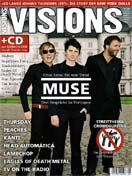
Dominic – the now-adult
Originally we didn't want it, but then it happened like this: We ended up touring with "Absolution" for two years, with many good but also difficult moments. Especially for me because my father died at the same time, almost exactly in the middle of that time. As a result, I went back and forth between the extremes – from pure joy and lightheartedness about what happened to us, to moments of deepest sadness and acute crises of meaning. The day of his death alone is exemplary: After a really overwhelming gig, I come off the stage and get the terrible news. Surreal, there is no other way to describe this emotional fair. The good thing was that I really got to know my friends – it was amazing how many of my so-called friends didn't even know how to respond to this tragedy. Chris was a special support during this time – he lost his father when he was 17, so he knew there was nothing to say – it's enough to have someone there to give you a hug when you need it. And in a curious way, this death has made me feel more confident – because when you lose someone so close to you, you learn to appreciate what you have all the more.
But other things were tough too. There were many injuries on this tour; for example, Matt cut his lip halfway on the first gig of the first US tour in five years [Atlanta 2004 show], so we had to cancel a few gigs. It got us so down - we honestly thought it was a sign that we should hook America. Just a few weeks later, Chris broke his wrist and we had to deal with a backup bassist. It was awful – and we were headlining V Festival. We sounded like a piece of shit*. And when Matt delusionally gave me a few cuts in the face with his guitar neck during a gig, we thought for a moment: Okay, we should stop touring for real. It was all very tragic for the band.
----------
*NME didn't think so.
#muse band#muse#dom howard#chris wolstenholme#matt bellamy#referenced gigs: Glastonbury 2004#Atlanta 2004 gig that fucked up Matt's face#I did not know about the Chris thing you know#muse interviews#Visions Germany#Visions Magazine#archived interviews#the rest of the interview hasn't been archived and so is lost. It was a three-part feature I think
17 notes
·
View notes
Text

#Interview Germany#Interview Magazine#September 2015#2015#Nicolas Coulomb#Florence Tetier#Georgia Pendlebury#Gilles Degivry#Alice Ghendrih#Becca Horn
4 notes
·
View notes
Text






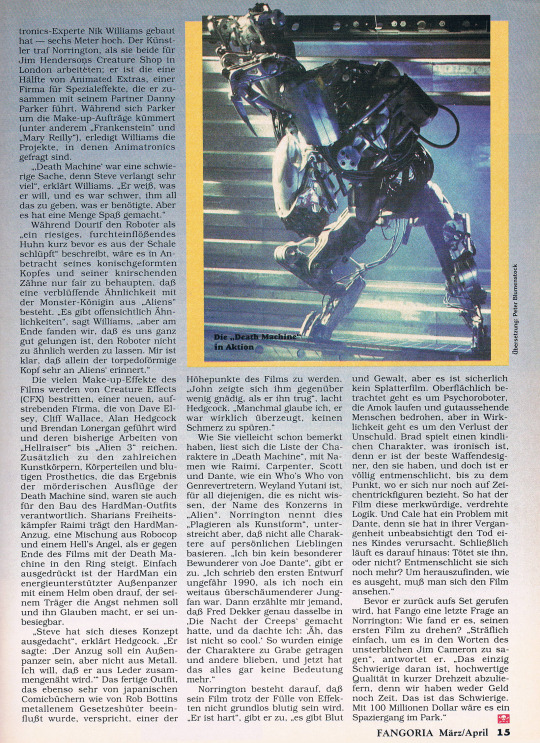
Death Machine - German Fangoria 01/1995
Ein Scan des deutschen Death Machine-Artikels, den ich vor kurzem in einer Fangoria von 1995 gefunden habe. Es ist eine Übersetzung der englischen Ausgabe und enthält Interviews mit Brad Dourif, Ely Pouget und Stephen Norrington über den Film und ihre Rollen!
A scan of the german Death Machine Article I recently found in a Fangoria from 1995. It's a translation from the original and contains Interviews with Brad Dourif, Ely Pouget and Stephen Norrington about the film and their roles!
(I don't know If any german fans are here on Tumblr, but I know they exist out there :D)
You can find the english version of the article HERE
#Death Machine#Death Machine 1994#Fangoria#Fangoria Magazine#germany#90s horror#90s movie#Stephen Norrington#Brad Dourif#Ely Pouget#deutsch#Fangoria deutsch#Brad Dourif Interview#Ely Pouget Interview#magazine scan#magazine cover
16 notes
·
View notes
Photo
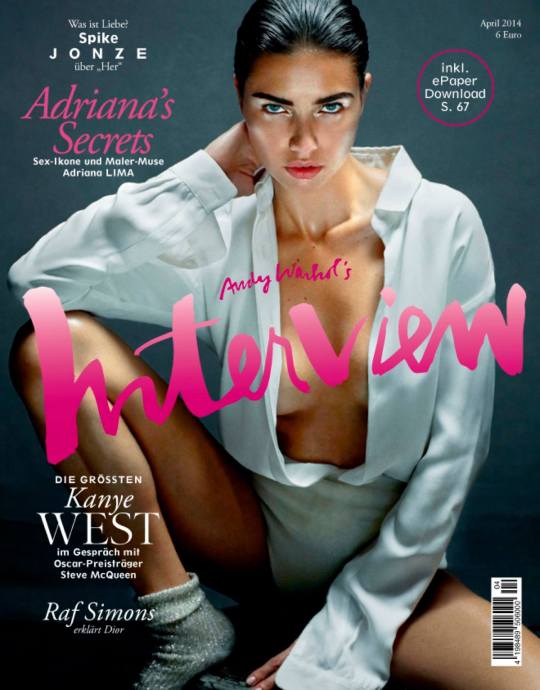
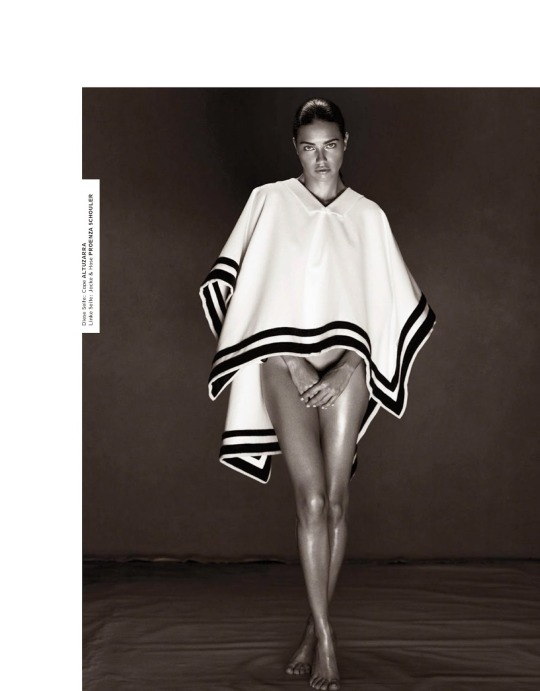


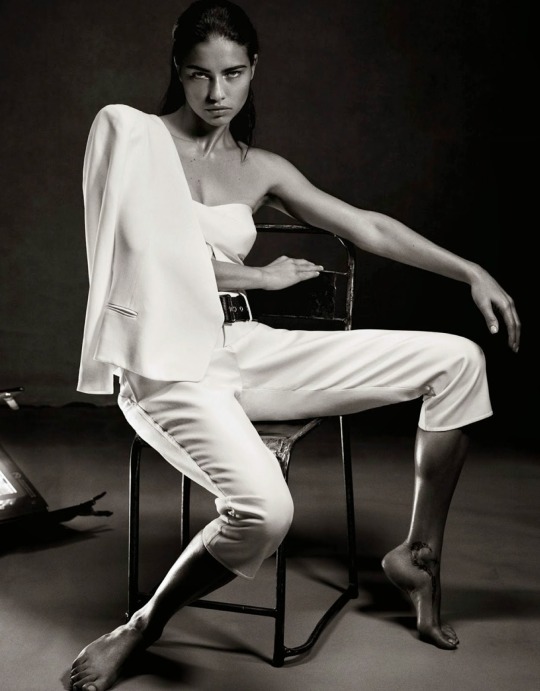
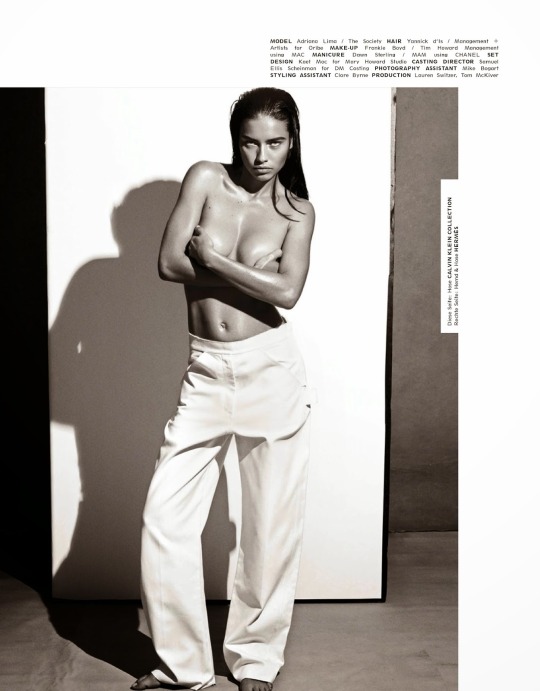
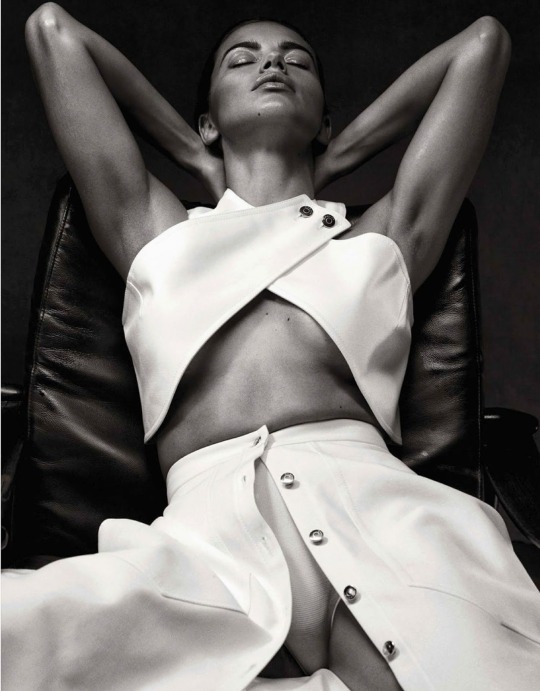
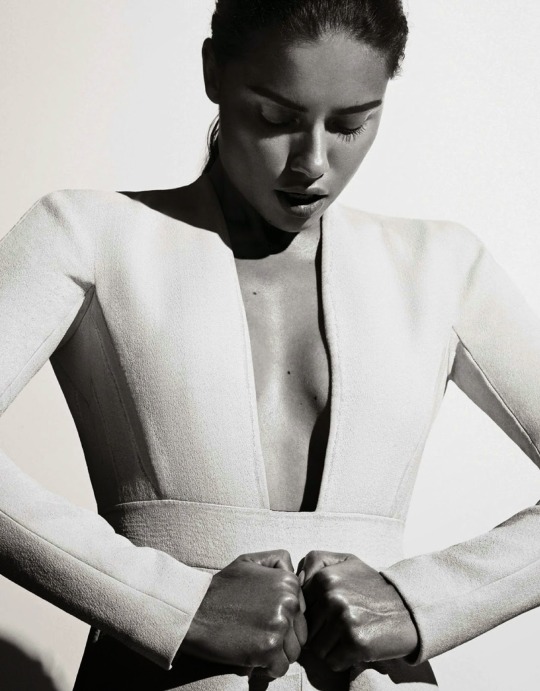

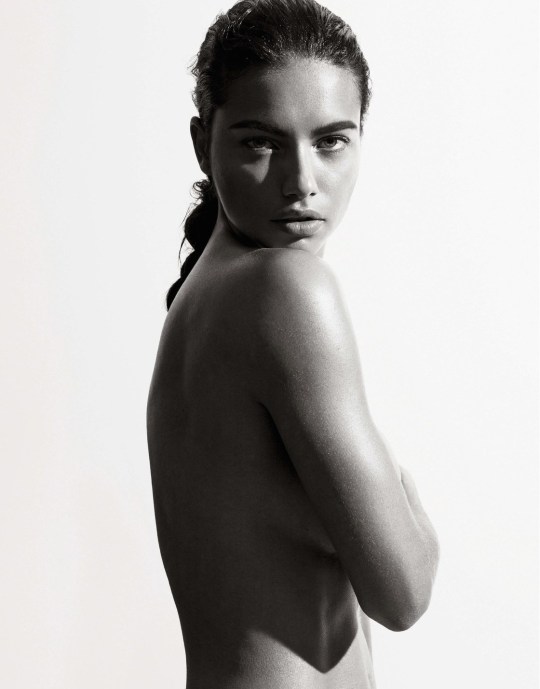
Adriana Lima on the cover of Interview Germany april 2014.
Queued
#Adriana Lima#interview#germany#april#2014#magazine#fashion magazine#goddess#angel#gorgeous#black and white
23 notes
·
View notes
Text
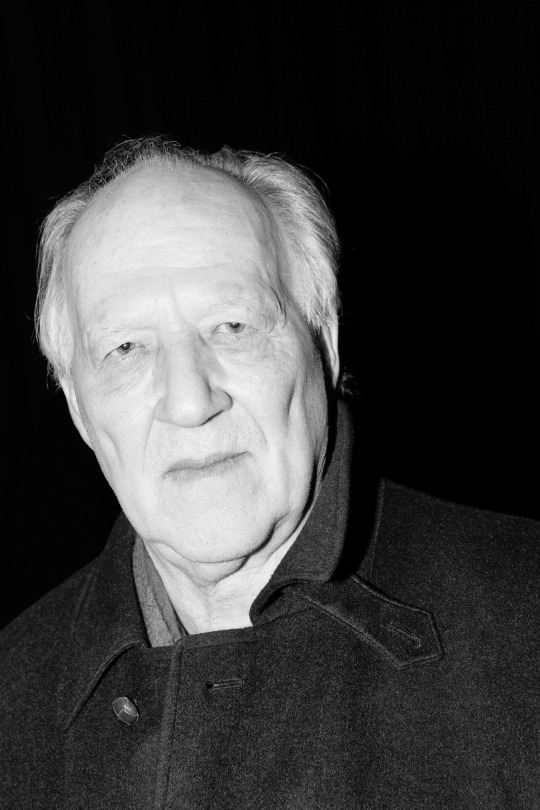
Happy Birthday , Werner Herzog
Photography (c) Michael Dürr
coming soon : Viennale
#Vienna#Viennale#WernerHerzog#Director#Film#Art#Cinema#Arthouse#Germany#Kunst#Kultur#Filmfestival#Photography#Artist#Artdirector#Writer#Editor#Photo#MichaelDuerr#MichaelDürr#Music#Magazine#Actor#Actress#Regie#Interview#HappyBirthday
more : www.michaelduerr.com
#photography#vienna#michael dürr#michaelduerr#magazine#art#design#werner herzog#filmmaker#director#film festival#viennale#munich#berlin#interview#germany#artdirector#writer#editor#happy birthday#portrait#arte#cool#bw#fotograf
0 notes
Text
#wolfgangbusch#coverstory#pride2022#a&u magazine#filmmaker#activist#awardwinning#lgbtqia#germany#ballroom community#preserving hiv history#interview#photoshoot
0 notes
Text
"She lied to a military police officer down by a hospital ship, said she was going to interview nurses about the 'woman’s angle,' and they let her on, because, as she said, no one gave a hoot about the woman’s angle. It served as the perfect forged passport for her," said Somerville. She resorted to those measures because her husband, Ernest Hemingway, tried to take over her journalist career.
This Saturday, June 6, will be the 76th anniversary of D-Day, the battle that would come to represent the beginning of the end of World War II.
There was just one woman, a war correspondent, on the beaches at Normandy that day the allied forces liberated Western Europe from Nazi Germany: the singular Martha Gellhorn. Author Janet Somerville traces Gellhorn’s extraordinary life in her book Yours, For Probably Always: Martha Gellhorn’s Letters of Love and War.
"Since 1937, Martha had been a war correspondent for Collier’s magazine. She knew about the Allied invasion, that there was a plan to cover the Allied invasion of Normandy, and she was determined to cover that," Somerville said.
The problem was, her very famous husband at the time, Ernest Hemingway, pulled the rug out from under her professionally.
"Hemingway had gone to New York, introduced himself to her editor at Collier’s and said ‘I’ll be your war correspondent.’ And he took her accreditation papers. Which was a bit of a problem," said Somerville.
Each publication could send just one correspondent. But Gellhorn was resourceful and clever. She found herself passage on a munitions ship from New York that would get her to Europe. She was the only woman and the only civilian aboard that ship, which landed in Liverpool. Then, she just needed to get to Normandy.
"She lied to a military police officer down by a hospital ship, said she was going to interview nurses about the 'woman’s angle,' and they let her on, because, as she said, no one gave a hoot about the woman’s angle. It served as the perfect forged passport for her," said Somerville.
Once on board the hospital ship, Gellhorn locked herself into a bathroom until they sailed. When the ship docked in Normandy, she waded ashore through waist-deep water with some of the medical officers.
"She became the only woman and the only war correspondent to be actually on the beaches at Normandy, evacuating the wounded."
Though she was there as a journalist to write about the event, she couldn’t help but tend to the wounded soldiers. She had an uncanny ability, Somerville says, to focus on what needed to be done. So when she saw that the wounded were hungry and thirsty, she set to work.
"She just took it in her stride and found somebody who could bring teapots to tip into their mouths,if they couldn't hold a glass. She just took charge and made sure that they got something," Somerville said.
She also managed to be one of many correspondents who wrote about D Day.
"The incredible thing about D-Day is that accredited correspondents produced 700,000 words of text, just about D-Day," Somerville said. "Martha was one of them. She had a piece called 'Over and Back' that Collier’s published."
Gellhorn went on to report into her old age, from all corners of the globe. She filed her last piece, about the murdered street children of Salvador, Brazil, more than 50 years after D-Day, when she was 87 years old.
Yours, For Probably Always: Martha Gellhorn’s Letters of Love and War, 1930-1949 by Janet Somerville is available at the link above, or wherever you buy your books.
#Women in history#Women in World War II#D-Day#women in journalism#Martha Gellhorn#janet Somerville#Yours#For Probably Always: Martha Gellhorn’s Letters of Love and War#Books by women#books about women#Fuck Ernest Hemingway
606 notes
·
View notes
Photo
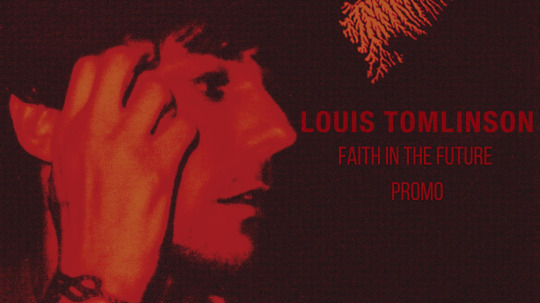
FAITH IN THE FUTURE: PROMO
Happy release day, Faith In The Future. Welcome.
◟̽◞̽ S ◟̽◞̽ T ◟̽◞̽ R ◟̽◞̽ E ◟̽◞̽ A ◟̽◞̽ M ◟̽◞̽
Bigger Than Me
Photoshoot
Spotify Bio
Written Interviews
Golden Discs
Official Charts
Euphoria Magazine
Los 40 Spain
Dork | Photoshoot
La Stampa Italy
Official Charts talking about 1D
Alt Press | Photoshoot
F1 Tracks
Kompas
Music Week
The Times UK
GQ Spain
WR Germany
Telegraph
The Guardian
Appearances, Video Interviews & performances
Cadena 100
Matt and Mollie | BBCR1
Smallzy
Radio Deejay Milano
BBC The One Show
Lad Bible
RTL Boulevard
Lorraine
NME
Late Late Show | Download
GMA
Z100's End of Summer Bash
Elvis Duran
106.1 BLI
94.3 Radio One
98.5 KRZ
Lattes With Louis | Hot 97.1
SiriusXM Hits
1075 The River Cocktail Party
Hot 106.7
Power 96.1
Q99.7 Atlanta
Lunch With Louis | Hits 96
103.7 KISS FM
96.5 TDY | Audacy Check In
Most Requested Live
Live 95.5
Jack Saunders
99.7 NOW
94.9 WiLD
Hits Radio UK
Zach Sang
The Night Show with Mitch Churi
Ask Anything Chat
Soccer AM
Virgin Radio France
Cauet Tv | NRJ
Le Parisien
Late Night Berlin
La Resistencia
NRJ
BMG Spain Fan Event
Lowkey Deep | Radio Jam FM
Socialité
40 Global Show
Rolling Stone
KKbox
Z100
ET Canada
Lad Bibble: Ask The Audience
Morning Mash Up: FITF release day
Jojo Wright
One Night Only New York, at the Irving Plaza
ETalk
La Paris March
Le Heute
Live with Kelly and Ryan
Radio Disney
FITF Signing, HMV Glasgow
FITF Signing, HMV Westfield
FITF Signing, Rough Trade
FITF Signing, HMV Manchester
FITF Signing, HMV Birmingham
FITF Signing, HMV Sheffield
FITF Signing, HMV Newcastle
FITF Signing, HMV Edinburgh
Audio interviews
Today FM
Q Music
B104
Energy
Listening Parties
Amsterdam
Jakarta
◟̽◞̽ UPCOMING EVENTS
Intimate gig with Banquet Records, Pryzm: December 12th, 8:30pm
Q+A and acoustic set with Banquet Records: December 13th, 6pm
Intimate gig with Banquet Records, Pryzm: December 13th, 9pm
Intimate gig at O2 Shepherds Bush Empire: December 14th, 8pm
The Gluten-Free Radio Show: November 17th
Delta Radio (Date TBA)
Radio Energy Austria (Date TBA)
INROCK (Date TBA)
Live 101.5 (Phoenix) (reschedule TBA)
1K notes
·
View notes
Photo
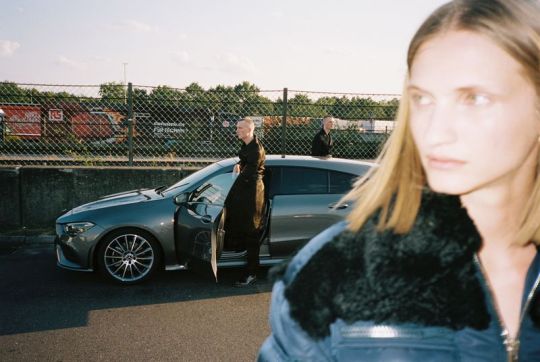
Christopher & Philipp Rosenthal, Fernanda Ly & Merle Gerhardy
by Vitali Gelwich for Interview Germany Sep’19
#christopher rosenthal#philipp rosenthal#fernanda ly#merle gerhardy#interview magazine#interview magazine germany#editorial#fashion editorial#fashion#fashion photography#photography#ss19#berlin#mercedes#vitali gelwich
2 notes
·
View notes
Text
“Lolita isn’t a perverse young girl. She’s a poor child who has been debauched and whose senses never stir under the caresses of the foul Humbert Humbert, whom she asks once, “how long did [he] think we were going to live in stuffy cabins, doing filthy things together…?” But to reply to your question: no, its success doesn’t annoy me, I am not like Conan Doyle, who out of snobbery or simple stupidity preferred to be known as the author of The Great Boer War, which he thought superior to his Sherlock Holmes.
It is equally interesting to dwell, as journalists say, on the problem of the inept degradation that the character of the nymphet Lolita, whom I invented in 1955, has undergone in the mind of the broad public. Not only has the perversity of this poor child been grotesquely exaggerated, but her physical appearance, her age, everything has been transformed by the illustrations in foreign publications. Girls of eighteen or more, sidewalk kittens, cheap models, or simple long-legged criminals, are baptized “nymphets” or “Lolitas” in news stories in magazines in Italy, France, Germany, etc.; and the covers of translations, Turkish or Arab, reach the height of ineptitude when they feature a young woman with opulent contours and a blond mane imagined by boobies who have never read my book.
In reality Lolita is a little girl of twelve, whereas Humbert Humbert is a mature man, and it’s the abyss between his age and that of the little girl that produces the vacuum, the vertigo, the seduction of mortal danger. Secondly, it’s the imagination of the sad satyr that makes a magic creature of this little American schoolgirl, as banal and normal in her way as the poet manqué Humbert is in his. Outside the maniacal gaze of Humbert there is no nymphet. Lolita the nymphet exists only through the obsession that destroys Humbert. Here’s an essential aspect of a unique book that has been betrayed by a factitious popularity.”
- Vladimir Nabokov in an Interview with Bernard Pivot for Apostrophes (1975)
#vladimir nabokov#dolores haze#im reading collected interviews rn and he says this over and over and over again#and no one ever listened#lolita novel
223 notes
·
View notes
Text
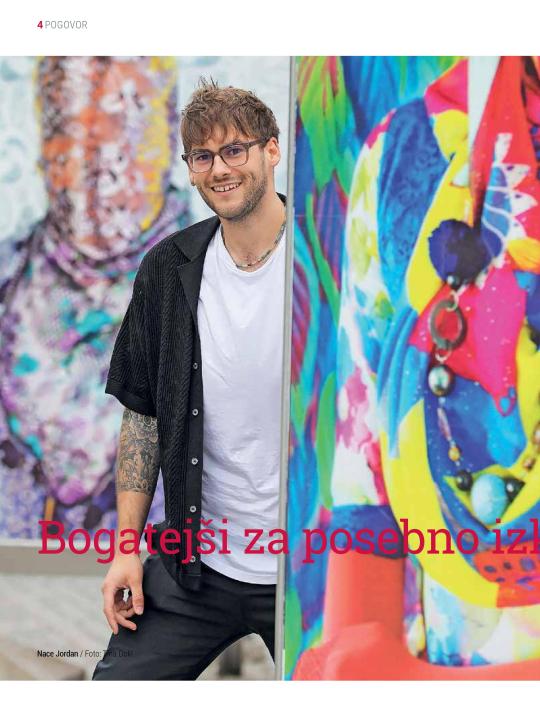
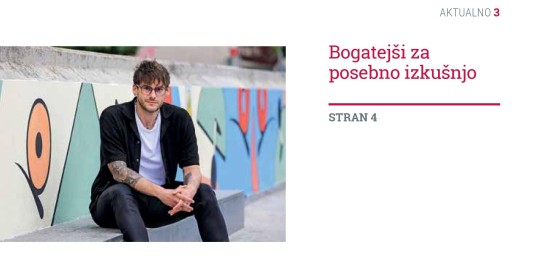
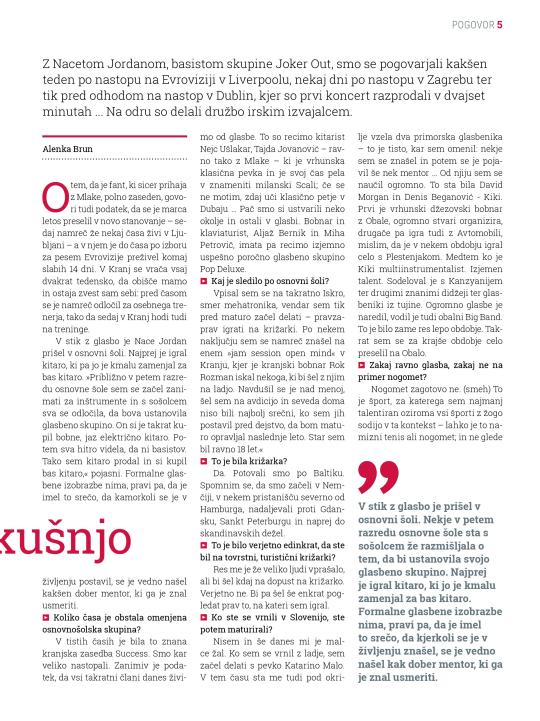
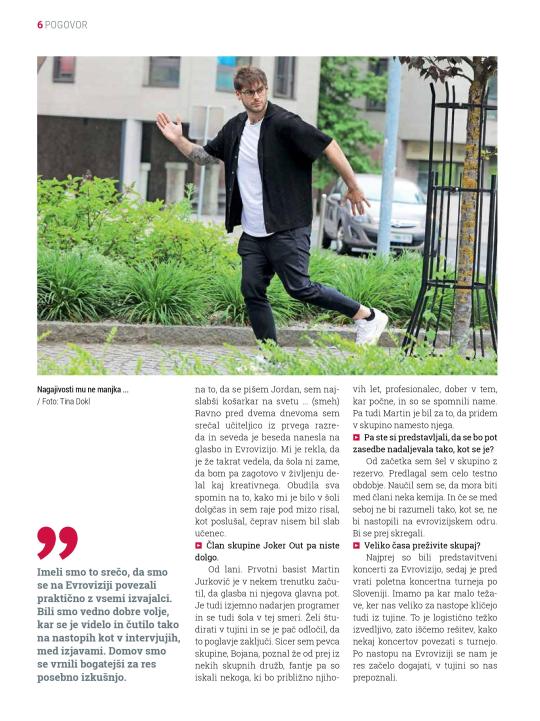
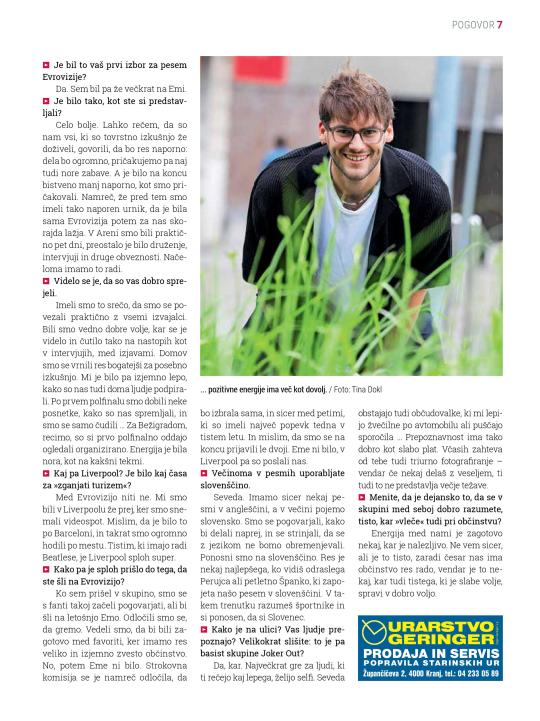
Interview with Joker Out's member Nace Jordan, from Slovenian magazine Kranjčanka!
"Enriched by a special experience"
We caught up with Nace Jordan, bassist of Joker Out, a week or so after the Eurovision show in Liverpool, a few days after the show in Zagreb, and just before they left for the show in Dublin, where they sold out their first show in twenty minutes… On stage, they kept company to the Irish performers.
The fact that this guy, who is otherwise from Mlaka (T.N: small village near Kranj), is fully booked, can be confirmed by telling you that he moved into a new flat in March of this year - he has been living in Ljubljana for some time now - but he has spent less than 14 days there until it was time for the Eurovision Song Contest. He still returns to Kranj at least twice a week to visit his mother and to stay true to himself: he decided to get a personal trainer a while ago, so now he also goes to Kranj to train there.
Nace Jordan came into contact with music in primary school. He first played the guitar, which he soon replaced with the bass guitar. "Around the fifth grade of primary school (T.N: 10-11 years old), I became interested in instruments and a classmate and I decided to start a music group. He bought a drum set and I bought an electric guitar. Then we quickly saw that there were no bass players. So I sold the guitar and bought a bass guitar," he explains. He has no formal musical training, but says he has been lucky that wherever he has gone in life, there has always been a good mentor who has been able to guide him.
I: How long did this primary school group last?
N: In those days it was a well-known Kranj band called Success. We did a lot of gigs. It's interesting that all the band members from that time are now living off music. They are, for example, the guitarist Nejc Ušlakar, Tajda Jovanović - also from Mlaka - who is a top classical singer and used to sing at the famous Scala in Milan; if I am not mistaken, she is now teaching classical singing in Dubai. We just created an environment for ourselves and stayed in music. The drummer and keyboard player, Aljaž Bernik and Miha Petrovič, have, for example, a very successful wedding band, called Pop Deluxe.
I: What came after primary school? (* (T.N: In Slovenia, primary school lasts for 9 years, from ages 6-15)
N: I enrolled at the then Iskra University, majoring in mechatronics, but just before graduation I started working - actually playing on a cruiser. By some chance I found myself at a jam session open mind in Kranj, where the Kranj drummer Rok Rozman was looking for someone to go on the boat with him. He was impressed with me, I auditioned and of course they weren't very happy at home when I confronted them with the fact that I was going to take my final exams the following year. I was just 18 years old.
I: Was that a cruise ship?
N: Yes. We were travelling in the Baltic Ocean. I remember that we started in Germany, in a port north of Hamburg, then continued on to Gdansk, St Petersburg and to the Scandinavian countries.
l: That was probably the only time you've been on a cruise ship of that kind, a tourist cruise ship?
I've had a lot of people ask me if I would ever go on holiday on a cruise ship. Probably not. But I would go and have another look at the one I played on.
I: When you came back to Slovenia, did you graduate from high school?
N: I didn't and I still regret it a little bit. When I came back from the ship, I started working with the singer Katarina Malo. During that time, I was also taken under the wing of two musicians from Primorska (T.N.: a region in the South-Western part of Slovenia) - that's what I mentioned: I found myself somewhere and then a mentor came along. I learned a lot from them. They were David Morgan and Denis Beganovic - Kiki. The first one is a top jazz drummer from the coastal area, he organises a lot of stuff, and he also plays with Avtomobili (T.N. slovenian band), I think he even played with Plestenjak (T.N. Jan Plestenjak, a famous Slovenian pop singer) at one point. Whereas Kiki is a multi-instrumentalist. He's an extraordinary talent. He has worked with Kanzyani and other famous DJs and musicians from abroad. He has made a lot of music, and he also led the Big Band from the coastal region. That was a really nice period for me. I even moved to the coastal region for a short period.
I: Why music, why not football?
N: Certainly not football (laughs). It's the sport I'm least talented in, or rather, all ball sports fall into that context - be it table tennis or football; and, even though my surname is Jordan, I'm the worst basketball player in the world (laughs). Just two days ago, I met my first grade teacher, and of course the topic of music and Eurovision came up. She told me that she knew even back then that school was not for me, but that I would definitely do something creative in my life. It brought back memories of how bored I was at school and how I would rather draw under my desk than listen, even though I was not a bad student.
I: You haven't been a member of Joker Out for long.
N: Since last year. Martin Jurkovič, the original bass player, felt at some point that music was not his main path. He is also an extremely talented programmer and is studying in that direction. He wants to study abroad and decided to finish that chapter. I knew the lead singer of the band, Bojan, from some mutual friend groups before, and the guys were looking for someone who was around their age, professional, good at what they do, and they thought of me. And Martin was in favour of me coming into the group instead of him.
I: And did you imagine that the band would continue the way it did?
N: From the beginning I went into the band with a bit of hesitation. I even suggested a test period. I had learnt that there has to be chemistry between the members. And if we didn't get along with each other the way we do, we wouldn't have performed on the Eurovision stage. We would have had a fight otherwise.
I: Do you spend a lot of time together?
N: First there were the Eurovision showcase concerts, and now there is the summer concert tour in Slovenia. We also have quite a few problems, because we get a lot of calls from abroad. It's logistically difficult, so we're looking for a solution to link some of the concerts to the tour. After the Eurovision Song Contest, we really started to get noticed abroad.
I: Was this your first Eurovision Song Contest?
N: Yes. But I have been to EMA (slovenian national selection for ESC) several times before.
I: Was it as you imagined it would be?
N: Even better. I can say that everyone who has been through this kind of experience has told us that it will be really tough: there will be a lot of work, but that we should also expect crazy parties. But in the end, it was much less exhausting than we expected. In fact, we had such a busy schedule beforehand that Eurovision itself was almost easier for us afterwards. We were practically in the Arena for five days, the rest was socialising, interviews and other commitments. In principle, we like that.
I: You seemed to be well received.
N: We were lucky enough to have connected with practically all the performers. We were always in a good mood, which was seen and felt both in the performances and in the interviews, during the statements. We came home really enriched by a special experience. And it was really nice to see how the people at home supported us. After the first semi-final, we got some footage of how they were watching us and we were just amazed how behind Bežigrad (Ljubljana district), let's say, they watched the first semi-final show in an organised way. The energy was crazy, like at a match.
I: What about Liverpool? Was there any time to "play tourists"?
N: During Eurovision, not really. We were in Liverpool before, because we were shooting a video. I think it was after Barcelona, and we did a lot of walking around the city then. For those who like the Beatles, Liverpool is great.
I : How did it come about that you went to Eurovision in the first place?
N : When I came into the group, the guys and I immediately started talking about whether we would go to this year's EMAs. We decided to go. We knew we would definitely be one of the favourites because we have a really big and extremely loyal audience. Well, then the EMA didn't happen. The jury decided to make their own choice, from the five entries who had the most songs of the week during that year. And I think only two of us ended up applying. There was no EMA, and they sent us to Liverpool.
I: You mostly use Slovenian in your songs.
N: Of course. We have a few songs in English, but we mostly sing in Slovenian. We were talking about how we would work going forwards, and we agreed not to bother with the language. We are proud of our Slovenian language. It's really something beautiful when you see an adult Peruvian man or a five-year-old Spanish girl singing our song in Slovenian. In that moment you understand the athletes and you are proud to be Slovenian.
I: How is it on the street? Do people recognise you? You often hear: is that the bass player of Joker Out?
N: Yes, quite. Most of the time it's people who say something nice to you, or want a selfie. Of course, there are also some "admirers" who stick gum all over my car or leave messages. There's a good side and a bad side to being a public personality. Sometimes it requires of you to spend three hours taking photos - but if you enjoy doing something, that's not a problem either.
I: Do you think that it is actually the fact that you get along well in a group that "pulls" in the audience?
N: The energy between us is definitely something that is contagious. I don't know if it's what makes the audience really like us, but it's something that puts even someone who is in a bad mood in a good mood.
Translation by @kurooscoffee (jokeroutsubs). DO NOT REPOST!
165 notes
·
View notes
Text
The Inner Symmetry
VISIONS Germany reviews Muse's set at Hurricane Festival in 2001 and interviews the band in issue No. 100, July 2001.
[Note: This article has been translated from German, and my German is nonexistent so I am no help here. Original article archived on archive.org]
Good Morning Beautiful
The summer of '99. A good year in every respect. Great records, great concerts, fine festivals. The Hurricane, for example, was one of those highlights that people talked about for a long time. Motorpsycho, dEUS, Chemical Brothers, Manson, Queens Of The Stone Age, Foo Fighters and dozens of other seal-of-approval gigs. That was nice.
Right in the middle: three young guys with playfulness, pressure and anger in their stomachs, and an album called "Showbiz". As well as half a dozen VISIONS editorial staff, who at eleven in the morning in a shockingly empty circus tent indulged in true emotional rapture. The reason: singer and guitarist Matthew Bellamy, bassist Chris Wolstenholme and drummer Dominique Howard celebrated live on German soil for the first time Songs like "Sunburn", "Muscle Museum" or "Uno" enthralled from the word go with brilliant guitar baths, magical presence and a punch that made the festival breakfast stick in your throat.
So there it was, the new Britrock sensation. Three pimply teenagers in shabby jeans and sneakers, who at first glance looked as if they had won the Sparkasse youth development prize. But they had prepared well, at home in tranquil Devon in rural nowhere in southern England. Had studied the records of Nirvana, Radiohead, Jeff Buckley and the Smashing Pumpkins in the children's room, met several times a week in the rehearsal room for years and worked meticulously on the details until they were really good.
Then, in early '99, they had just that little bit of luck: John Leckie, the production ace for Britain's rockier moments, found them fragrant and took them to the pampas. More precisely: to Cornwall to Sawmill Studios, where, in the middle of the forest and far away from any civilisation, bands like Oasis, Supergrass and the Stone Roses had already put down great albums. And now it would come, the "Showbiz".
In the afternoon of that day on the Hurricane [festival], during an interview in their then-still clearly small camper, three super good-humoured rockers lolled about casually on their couch and gibbered over the small group of girls who openly offered themselves as accompaniment for the afternoon at the concert earlier searched. Man, that's pretty exciting, all of this. Matthew shakes his head: "It's so surreal. Up until a few months ago we were still practicing our fingers sore in the rehearsal room and playing in pubs to a few people who thought we were shit. And now we're rocking here in Germany at one of the biggest festivals and having a lot of fun. Great, and now I'm going to see Placebo."
The World Is Yours
It's cold, it's winter '99. Despite the technical problems and ten hours on a snow-covered autobahn, Muse really impressed the almost sold-out Cologne Prime Club. Later, Dominic, Matthew and I are sitting in my old Opel, freezing like slugs in the three-star freezer and listening to tapes for a VISIONS blind date. They seem pretty much destroyed - the fact that "Showbiz" was released worldwide, at the same time and with great fanfare now hits mercilessly. You want them, preferably anywhere and immediately. Five club concerts in Europe, then as support for the Foo Fighters and Porno For Pyros through the States, and in between to Southeast Asia, where they already fill the big halls.
That takes its toll. As a jittery, flu-stricken Matthew soberly states, "It's damn hard to maintain a consistently high level when you've got absolutely no downtime. Right now, all I could do was sleep all day." Moderately enthusiastic they fight their way through the 15 songs on my tape, only the new Therapy? can really blow his mind. "My goodness, let's get started," says Dominic happily. "And how well they play to the point. Oh man, we still have to practise a lot."
Pleasure And Pain
Earlier this year in London: visibly relaxed, contentedly grinning faces on the band and label people. The weather is beautiful, the hotel is large and expensive, the lounge is comfortable and the media entourage is international. A relaxed afternoon with fine finger food and a lot of questions. And new sneakers for Matthew. Unconventionally cut old school sneakers with fashionable puma fur applications in black and bordeaux. He got it from the Japanese delegation because they heard that he likes that sort of thing. That's right - Matthew is overjoyed: "An excellent gift. Because that's how it is with shoes for me: I always only have one pair. I wear it exclusively and for as long as possible. Until I get a new one that I like.
With all due respect, Mr. Bellamy, I blurted out unintentionally, it was about time. Because his previous favourite pair, parked right next to my armchair, a festival-proven biotope of days gone by with the pungent aroma of ammonia and acid, could have a negative effect on sex appeal. "Heehee, finally someone else tells him!" giggles Dominic, who is lounging next to Matthew on the sofa and gnawing the toppings of bite-sized slices of pizza in layers.
Matthew takes it easy, like so many things these days. But they also have every reason to smile: Yesterday, at the first small club gig after a five-month studio break, it literally broke out of them. Pressure and fun in a family package, a superbly balanced balance between brute force and pure beauty, and all with a tightness and precision that very few trios can achieve.
Also, and even more important: The second opus "Origin Of Symmetry" is as good as in the can, and, so they say, turned out really smart. More ideas, more courage, more variation, more studios and more real human bones - the latter used as idiosyncratic sounding percussion instruments. “Yeah, that's about it,” Matthew judges. “We just wanted to trust each other more. We know more, can do more, so we want more.”
According to Matthew, the most important development, which was also unmistakable last night, is the following: “We have found out what it really means to be a three-man band and how we can optimally use these advantages. We've listened to a lot of Jimi Hendrix Experience, Cream, Nirvana, Primus and Police—the best trios in music history—and only focused on what makes them special: dynamics, interaction, precision, filling in empty spaces. I think we're getting that across quite well now.”
His trick: variation. In volume, mood, intensity and instrumentation. The latter especially, because Matthew has learned to play the piano. “I've been really into playing keyboards, Fender Rhodes and piano for a long time, and now I'm composing a lot with them too. I aspire to be at least as good at it as I am at the guitar. That's why we're going to integrate the keys into the concerts in the future. That gives some songs a completely different, completely new vibe.” Also: It also looks good. “I think it's cool: Sitting on the stage behind his piano, singing a ballad and having the blues. Almost a bit like Tom Waits.” A jealous crook,
“There are two sides to Muse – in the songwriting, on stage, in all of our music. They express the two opposite moods I can find myself in when making music. On the one hand you have the happy, light-hearted side that's just looking for a good melody and a well-rounded song. On the other hand, there is this thoughtful, serious, dark, often aggressive element that sometimes breaks out of me and creates wild, unbridled moments. That's what scares me sometimes on stage, because something almost always breaks. It's the borderline between pleasure and pain. You have to learn to deal with that.”
Truly, not an easy chunk. Especially when impressions like those of the past year rain down on you. Shrill situations and people, bad and good surprises, a life with left indicators and headlight flashers. Matthew says: “You're in the middle of Australia, the phone rings and they ask you if you can tour America with the Chili Peppers next week. And a week later you are suddenly in Japan and 20 girls are camping in front of your hotel room. And if you go out and talk to them, they make a big fuss and run away. At the bottom, you hop in the limo, drive to the venue, and then all hell breaks loose.”
That Rockstar Thing, Revisited
Easter in Düsseldorf, two months later. Almost everything is the same as it was a year ago when you were here for the first time: the same place (Philipshalle), the same occasion (Osterrocknacht). But: a different position. If you gave the afternoon heater back then, this year you are the secret main act for many. Also different from last time: the mood. Because it's bad. There are far too many interviews, viva is annoying and they don't feel like signing autographs. And then this ugly backstage room, of all things, the one next to the Stereophonics, who you always thought were stupid.
Especially since their singer Kelly Jones informed readers in detail in an NME interview about how independent and boring Muse were compared to them. And anyway: Matthew is a little snot with bad manners. As proof, a play follows in two acts. Part one consists of a very pissed off Mr. Bellamy, unannounced visits to the cloakroom neighbours, arguments, ugly scenes, and to top it all: red wine stains on your favourite sneakers. The end of the scene: even more bad mood. The evening seems to have passed.
But part two follows in no time, less than an hour later: Muse on stage. Professionals in a duel - with the weapons of the musician. Matthew is the grumpy, multi-talented frontman somewhere between languishing singer, maniacal guitarist and serene piano player. The new songs are stunners, today's drive is a very special one, and the Stereophonics playing after them look pretty lame and tired. Muse, the ‘young urban professionals’ of rock music, do what they do best: vomit out emotional apocalypses that have become songs, absorb anger and energy, surf on a sea of intensity, melody and groove.
They play skilfully on the keyboard of the rock 'n' roll premier league, and not only in musical terms, as the rest of the evening proves. We—that is, the industry-standard mix of media representatives accompanying the band—are sitting in the living room booth of their super-luxury bus on the way to the after-show party in a rented hotel suite. The band is upstairs in the living quarters of the rolling amusement hut; not alone, as giggling girls' voices tell us.
Later, in the suite, a motley crowd of roadies, journalists, musicians and label people demand music and alcohol. Matthew, Chris and Dominic are just taking a shower or something, the procurement of drinks is faltering, everyone is waiting, nobody knows why, for whom and in what condition.
But as soon as they are there, the fun trumpets with the aura of successful alternative careerists, things get turbulent. Beautiful girls give them beautiful eyes, complimenting pats on the back from every side, handshakes and a bit of casual socialising. Who would have thought: The insignia of being a star are now excellent for the three inconspicuous boys from the sheltered provincial idyll.
As it's almost getting light outside and my skull is getting darker and darker, I'm standing in front of a monstrous wide-screen TV with Dominic and an absinthe in my hand. My efforts to explain to him that the hotpacks from the Rockpalast broadcast that are just crossing the screen are called Clawfinger, were a very hot sweep in the early 90s and were allowed to replace the main act today, earns a weary shrug of the shoulders. "I've never heard that. Must have been before my time. I was just starting out on Nirvana and grunge at the time.” Young veggies, damn it.
Blood, Sweat & Abbey Road
Three weeks later we meet again, because in the meantime "Origin Of Symmetry" has hit the home CD player. It only needed a few runs to convey the certainty: This record also has it, something special, maybe even more than the debut "Showbiz", which in direct comparison seems downright tame.
The foundation: a handful of fantastic, aggressive rock tunes like "New Born", "Hyper Music" or the first single "Plug In Baby", with killer melodies and beats like slaps in the face. The walls: magical ballads like the suicidal blues "Feeling Good", the heart-rending "Screenager" or the sacred "Megalomania", which comes with church organs. The roof: confused glam rock with tasteful 80s keyboards ("Bliss"), a vocally losing-all-control of Matthew in the pathos anthem "Micro Cuts", or orchestral monumentals in the best prog rock tradition, as in "Space Dementia" or " Citizen Erased". A colossus of diversity, beauty and great songs.
The circumstances of this album production couldn't have been better either: They spent a few months in the four most expensive and best studios in England - including Peter Gabriel's 'Real World' mega complex, Pink Floyd's David Gilmour's studio houseboat and, of course, 'Abbey Road'. “Admittedly, we also had to take a deep breath at the end of the recording when we asked ourselves what the next record should actually be,” says Dominic. “But should we forego such opportunities because of that?”
During the recording sessions, they were again guided for long periods by the skilled production hands of John Leckie, but on four of the heavier songs they also put themselves in the care of another top-class sound carver: Tool producer Dave Bottrill. “I don't think anyone understands us like John, but it was a very important experience,” Matthew recalls. “Dave has a very different approach to a band and their music.” What's the biggest difference between them? “John Leckie is sound, arrangement and feeling. Dave, on the other hand, thrives more on the energy he thrashes into you while recording. It really helps you get the most out of yourself.”
With the finished high-quality recordings, Matthew says, they were drawn back “back home to our living room, now in terms of studio technology.” Namely to Cornwall to the 'Sawmill Studios', whose owners - and this is where we come full circle - meanwhile too is her manager, closest adviser and backup daddy. We are sitting in the bright sun on the terrace of a luxury hotel in Hamburg. As usual, Chris is the friendly, grinning, reserved observer. Dominic, the smug rascal with the dry jokes, asks me the name of the pretty promoter who is taking care of them today. And Matthew, the bright kid with a penchant for hyperactivity, meticulously paints every colour abrasion on his run-down Asian sneakers black again with an Edding.
Despite the stress of everyday touring, they make a vital, tidy impression today. The recipe is simple, explains Matthew. “First: eat better, take care of yourself a little. And secondly: going out a lot, having a few drinks with nice people who were at your concert. In short: lead a social life. If you just hang out at the hotel and lock yourself up, like we did on the last tour, then eventually all ties to normal life will be severed. You'll quickly become a bit ‘meschugge’ [mad?]. That's why we're going out a lot more among people this time. It helps you stay grounded. The only thing that is sometimes clearly neglected is sleep.”
Good keyword: Is there ever help? Surely you get offered at some after-show party, that junk. But no, no power to the drugs - at least the stupid ones. “Everything that is too speedy or too chemical drives me crazy, we don't really need that at all. The greatest feeling is something hallucinogenic, maybe a few mushrooms. But never on tour. At most at home, or rather in the studio if you got stuck musically and need a conceptual overview for a few hours.”
That's how they sit there: three smart young men in harmony with themselves, the world and the temptations lurking everywhere. Unaffected, reflected and extremely relaxed wolves of the music genius in the sheep's clothing of young normal people. “That's what life is all about,” says Dominic. “Being able to do exactly what you want to do most, in a relaxed, optimal environment.” “There are still phases where I catch myself thinking that all this is nothing more than is a great dream,” adds Matthew. “And then again there are moments when the full force of this crazy rock lifestyle hits my bones so much that I know: That must be reality.”
This is also reality, and current ones at that: Muse are the paragons of the new generation of boisterous rock emotionalists. The reactions to the album range from positive to overwhelming, the concerts are buzzing and everyone is happy. The fans, because they can indulge in pure Muse enjoyment. The label, because if everything goes well, you can soon earn a lot of money with it. And the band, because they can take all the freedom they want and still be loved fanatically and taken 100% seriously.
Matthew is a bit proud: “What I think is so great is that people really engage with us. Because that proves: We are not hype, everything is solidly developed success. When we try something new or overshoot the mark, nobody says: ‘Let them do it, they're crazy anyway.’ No, people try to understand why we do something. They take us seriously and deal with our ideas. It's a really great feeling to be liked for that, not because you had that one cool #1 hit with that catchy tune.”
Just An Ordinary Night
Their gig in the completely sold-out market hall on the same evening is rather meagre thanks to a terribly miserable sound, terrible scramble and the obvious listlessness of the actors. But today's after-show party in a hip cocktail bar on the Alster is quite solid. A constellation of journos, record bosses, musicians and happily grinning groupies, which is remarkably similar to the Düsseldorf drink, but today decidedly more top-class, basks in the wonderful feeling of being able to be there. And they do their job well, the three main actors. Are charming, funny, constantly surrounded and even concerned about the musical well-being of the guests - Dominic doesn't give up until he can soften the granite block programmed stoically to house by a DJ to let the complete new Weezer record run through.
"Is that a pattern every night when you're on tour?" my gin and tonic-soaked brain asks an equally heavily-counted Matthew as we wait for cabs at dawn. “Yeah, more or less. That's good: we have fun and gain experience. And then you can write songs about it again.” And hey presto, he's already sitting in the taxi with Dominic and a pretty companion. Hopefully he'll keep his shoes on later for the cozy part in the hotel. The one with the cougar pattern, the red wine stain, and the marker pen on the side.
#muse band#muse#matt bellamy#chris wolstenholme#dom howard#muse interviews#VISIONS Germany#VISIONS Magazine#2001#Origin of Symmetry#Showbiz Muse#Muse band#translated interviews#(i.e. I'm sorry if things seem a bit off in the centre! I've tried reading and making sense of it all; few changes here and there#but if the word translations are wrong from the original German I can't help with that unfortunately)#man 90s and 00s journalists were packed off with a bottle of booze and a pad in hand and just told to have the maddest times eh#I suppose a true sacrifice to their art: they drove themselves a little insane to get to the heart of what a band was about— see their#ugliest faces and write about it#I kinda respect that; we don't have that anymore. No magazine has the budget for it and neither do rising indie/rock musicians#that's a whole way of life in music that's gone#music journalism#Muse Germany#long post
6 notes
·
View notes